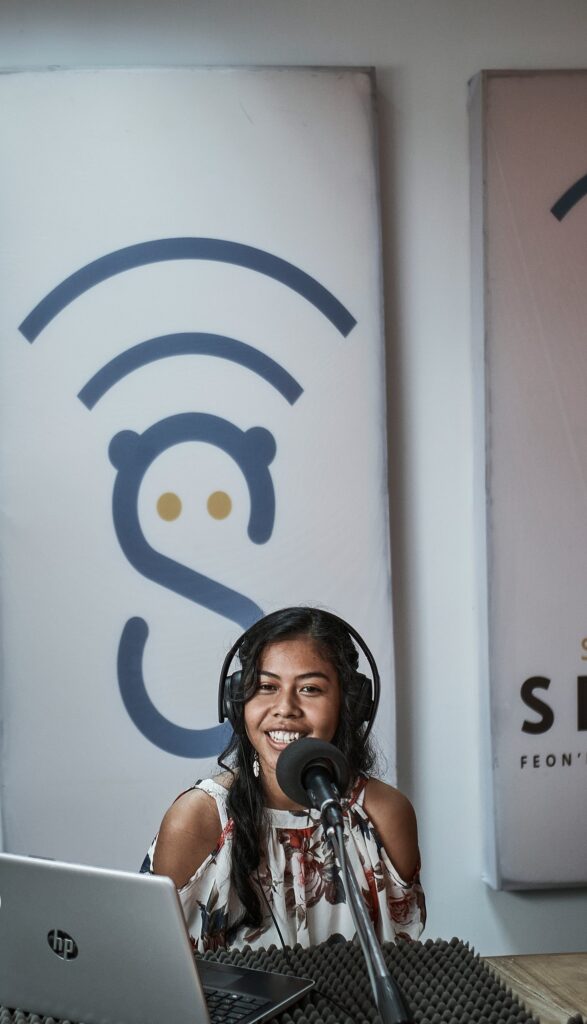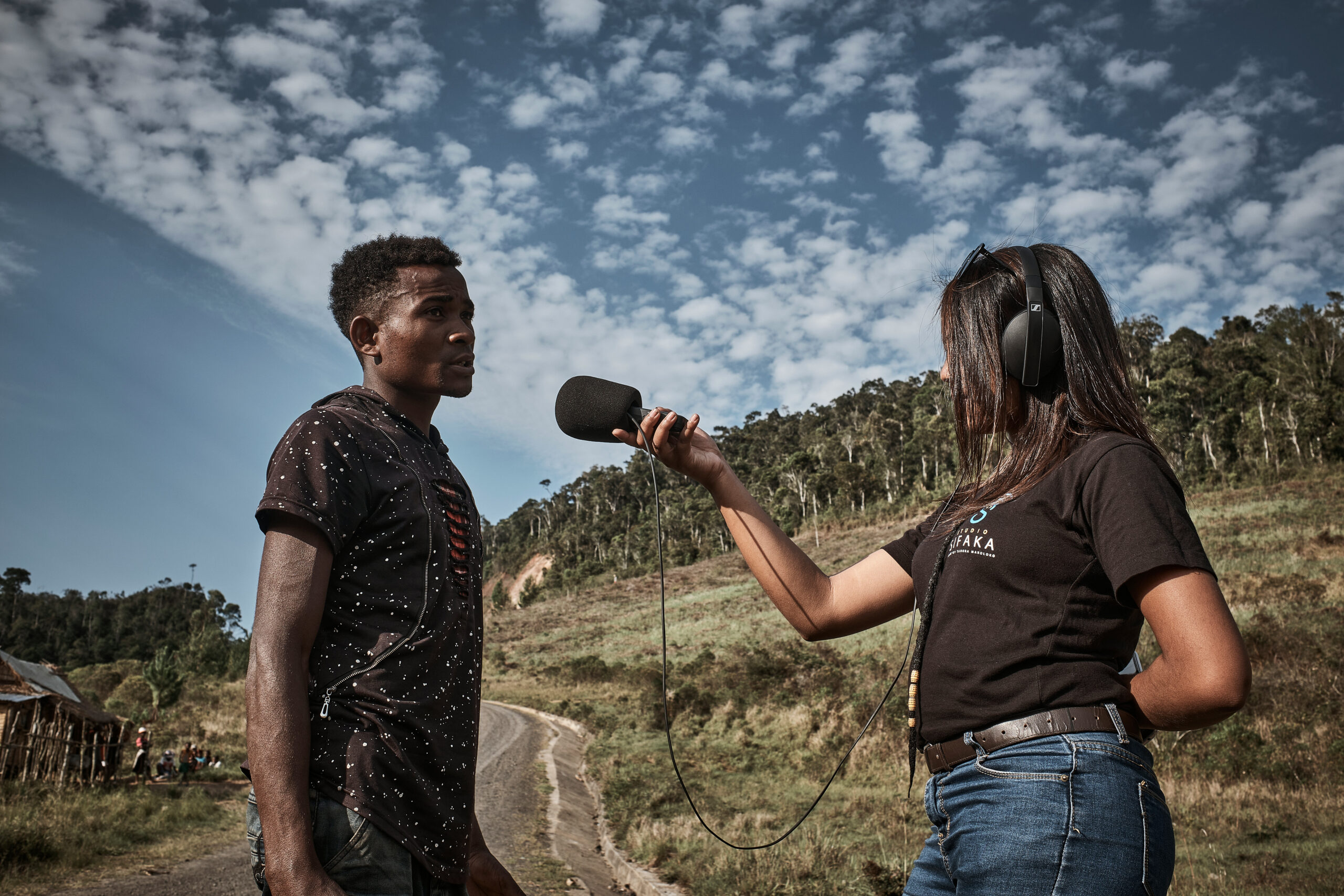“Engaging Malagasy Youth through Radio Dialogue” – this study, conducted between November 2020 and June 2021, aimed to measure the impact of a political dialogue radio program, The Youth Debate, produced by Studio Sifaka, on a young audience often disengaged and poorly informed about political issues and civic life.
Context
In Madagascar, electoral cycles have often been marked by social unrest, fueled by major media outlets manipulated by partisan forces. In light of widespread suspicions of political fraud and media manipulation, Malagasy youth—who make up 60% of the population—have gradually disengaged from civic life.

In response to this situation, the United Nations in Madagascar, in collaboration with Fondation Hirondelle, launched Studio Sifaka in 2019—a non-partisan and trustworthy radio and web production studio aimed at Malagasy youth. Its goal: to increase their political engagement, support for democratic norms, knowledge, and tolerance toward marginalized groups. One of Studio Sifaka’s flagship efforts is The Youth Debate, a dialogue program bringing together political leaders, CSO representatives, and other community members to discuss important political and civic issues.
The impact study presented here focused on estimating the short-term effects of regular exposure to The Youth Debate.
Methodology
The evaluation was designed in partnership with Dr. Jeff Conroy-Krutz, Associate Professor in the Department of Political Science at Michigan State University.
Study participants were recruited via automated phone calls to more than 800,000 Malagasy phone numbers registered with a phone-based information service (Viamo). Quotas were set to obtain nationally representative samples based on region and gender. Ultimately, the study involved over 7,000 people aged 18 to 34. Two randomly composed sub-groups were compared:
- Group 1: encouraged to listen to The Youth Debate (the “treatment” group)
- Group 2: encouraged to listen to a placebo program—Santé Nakà, a Sifaka show focused on health
Both groups were encouraged to listen to their assigned programs over a six-week period. Participants were compensated with 2,500 ariary (~US $0.67) in mobile credit to incentivize participation at each phase of the study.
This innovative approach received the 2020 NADEL/ETH Zurich Impact Award, which co-financed half of the study.
Key Findings
The study produced strong evidence that The Youth Debate met many of its stated goals. Compared to those who listened to the placebo program, individuals exposed more frequently to The Youth Debate were:
- More likely to talk about politics
- More likely to report attending community meetings
- More likely to support inclusive dialogue to solve problems
- More likely to support group-based decision-making
- More likely to support pluralism in the Malagasy media landscape
- More likely to feel capable of influencing politics (i.e., internal efficacy)
- More likely to believe leaders would listen to people like them (external efficacy)
- More likely to say that freedom of speech is respected in Madagascar
- More likely to reject cheating in elections as a political strategy
However, the study found no significant effects on support for political violence or polarization.
Overall, the measured effects demonstrate that The Youth Debate has a significant and positive impact in promoting democratic norms, dialogue, tolerance among groups, and political engagement. This approach proves particularly effective and reliable for measuring the impact of our programs.
The full study report is available here:
For more information: sacha.meuter@hirondelle.org

